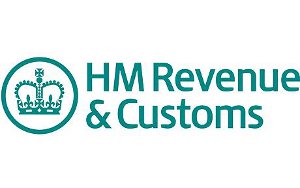MPs target HMRC over thousands of ‘borrow to pay tax bills’ letters in controversial loan avoidance case
HM Revenue & Customs has come under fire from MPs over a letter that it sent out to tens of thousands of self-employed workers suggesting that they should consider remortgaging their homes or take out loans to settle huge tax bills they’ve been hit with relating to decades old tax arrangements.

A cross-party group of MPs has called on the Financial Conduct Authority to scrutinise the letters that HMRC has sent to about 50,000 individuals facing the loan charge — a new law that will tax up to 20 years of income received via “disguised remuneration schemes” in one year.
The letters, the contents of which have been reported by the Financial Times newspaper, state: “It is expected that you use every means to meet your obligations and pay the tax and interest liabilities that are due. This may include raising a loan or selling other assets.”
Mary Aiston, HMRC director of counter-avoidance, told the Treasury select committee in January: “For some people, [HMRC] may say [to them] you need to take a loan out if you have got equity in your property, if that’s the right answer and people can manage the repayments.”
However, the Loan Charge Action Group says that for years contractors fully declared these loans in their tax returns, and the HMRC’s retrospective measure means thousands face large demands for payment, and are facing financial ruin.
And the All-Party Parliamentary Group on the loan charge has written to Andrew Bailey, chief executive of the Financial Conduct Authority, and chancellor of the exchequer Philip Hammond to query whether the advice given by HMRC was a potential “breach of FCA regulations”.
Nicky Morgan, Conservative MP and chair of the Treasury select committee, has also written separately to HMRC and Mel Stride, financial secretary to the Treasury, questioning how they are able to justify pursuing debts going back 20 years.
Ms Morgan also questioned why contractors who had declared the use of loan schemes on their tax returns, yet had heard nothing back from HMRC, were now being caught by the new charge.
“[Such individuals] could have reasonably believed that their tax affairs were in order,” she wrote.
Sir Ed Davey, chair of the APPG, said: “The FCA has stated that ‘debt advice and the provision of personal loans or lending is a regulated activity’ so we have written to [them] asking if HMRC’s advice is in breach of their rules, as HMRC are not on the FCA list of approved organisations to offer debt advice.”
He added that HMRC’s advice was “clearly inappropriate”, as many people facing the loan charge would struggle to repay debts of this size as they were self-employed, retired or nearing retirement. “[Several] reputable lenders will not lend the amounts of money to pay the huge demands many people are facing,” Sir Ed added.
HMRC said: “HMRC does not give personal financial advice. However, where taxpayers don’t have the necessary liquidity, but do have assets that could be used to raise funds to pay what is legally owed, this is an option that should be considered.”
An FCA spokesperson said: “We have received the letter and will respond.”






